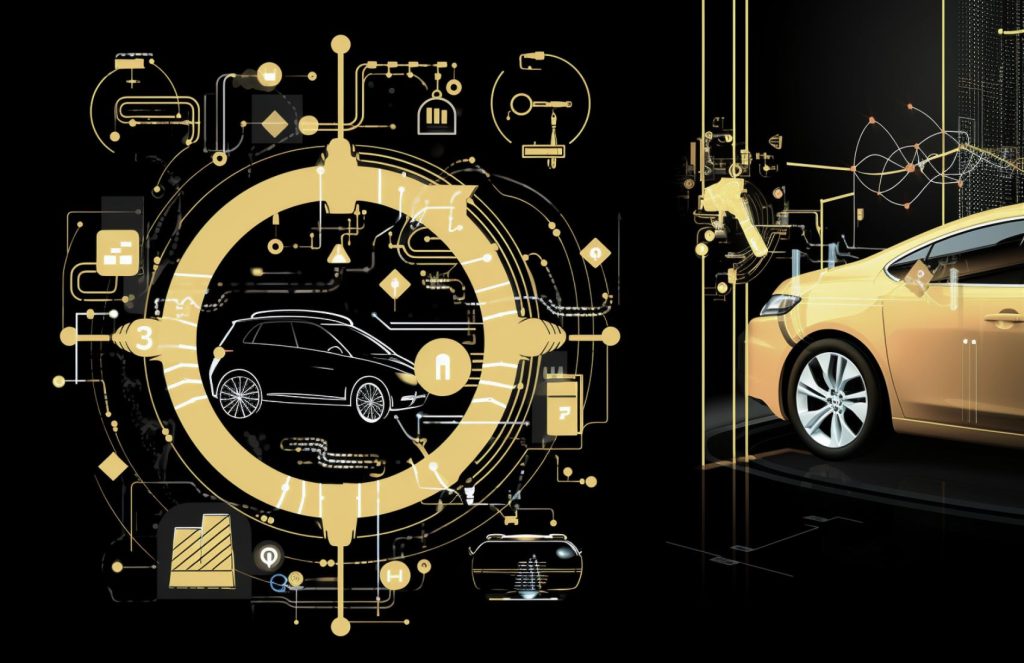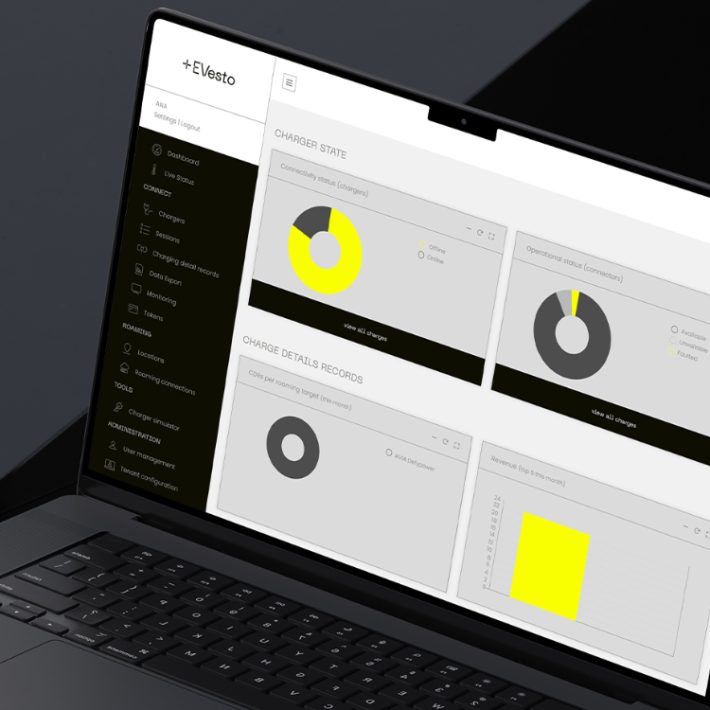Key Protocols that govern Electric vehicle (EV) charging
19 July 2023
Protocols are crucial for effective communication in the electric vehicle (EV) charging ecosystem. They ensure interoperability, standardization, and secure communication between various components. This article explores the significance of protocols and how EVesto utilizes them to deliver seamless and efficient charging solutions.

The Importance of Protocols in EV Charging
Protocols play a vital role in the operation of EVs and their charging infrastructure. They enable interoperability, ensuring effective communication between devices, systems, and networks. Protocols also provide a framework for standardization, guaranteeing compatibility between EVs, charging stations, and management systems from various manufacturers. Additionally, they define the implementation of functions and features, such as remote control and firmware updates.
Moreover, protocols incorporate security features to protect against unauthorized access and malicious attacks, ensuring the integrity of the charging process and user data. They also enhance the user experience by enabling roaming services and simplifying EV charging.
Here are some of the most important ones:
- Open Charge Point Protocol (OCPP): This is a universal protocol for communication between charging stations and a central management system. It allows for remote control, firmware updates, session information, and more. There are several versions of OCPP, with 2.0.1 being the latest.
- IEC 61851 is an international standard for electric vehicle conductive charging systems. It defines the communication between the EV and the charging station for AC charging.
- ISO 15118: This international standard defines the communication between the EV and the charging station. It supports advanced features like Plug and Charge (PnC) and bi-directional charging (V2G).
- CHAdeMO: This is a DC charging standard that was developed in Japan. It supports both fast charging and bi-directional charging.
- Combined Charging System (CCS): This is a standard for DC fast charging developed by several major automobile manufacturers. It combines the AC and DC fast charging connectors into a single port on the vehicle.
- Tesla Supercharger: This is a proprietary DC fast charging protocol developed by Tesla. It is currently only compatible with Tesla vehicles.
- Open Charge Point Interface (OCPI): This protocol allows roaming services between different charging station networks. It enables EV drivers to use charging stations from different operators with a single subscription.
- OpenADR (Automated Demand Response): This is a standard for communication between utilities and customers to adjust power demand. It can be used in EV charging to shift charging times to periods of low electricity demand.
- The Open InterCharge Protocol (OICP): is a protocol developed by Hubject, a joint venture of several major companies, including BMW, Bosch, Daimler, and others. It was created to facilitate the interoperability of charging infrastructure and services for electric vehicles (EVs).OICP is primarily used in Europe and allows for the exchange of information between different charging station operators and e-mobility service providers.
- The eMobility Interoperation Protocol (eMIP): is an open protocol developed by GIREVE. It enables the transfer of data and services between an operator’s software platform and GIREVE’s platform. The protocol aims to enable roaming of charging services and provide access to a comprehensive charging point database.
- The Open Smart Charging Protocol (OSCP): is an open standard for communication between EV charging stations, management systems, and smart grid components, enabling smart charging, demand response, and grid integration.
- The Open Clearing House Protocol (OCHP): is an open standard for EV charging networks. It enables seamless roaming and billing between different charging operators. OCHP allows EV drivers to access stations from multiple operators using a single authentication and payment method.
- SAE J3400 Standard: This is a significant new development, representing a milestone for Tesla-developed connectors used in EV charging. The SAE J3400 standard marks a step towards defining the design, construction, and technical characteristics of the connectors and inlets used in EV charging. It aims to expand charging access for current and future EV drivers by moving the North American Charging Standard (NACS) connector towards an open industry standard. This initiative is expected to enhance interoperability and streamline the charging experience for EV drivers.
- NACS – North American Charging Standard: Introduced by Tesla and now adopted as NACS, this standard offers AC and DC charging capabilities in a single plug, with capacities exceeding those of the CCS standard. Major automakers, including Ford and General Motors, have announced plans to adopt NACS, indicating its significant impact on the industry. Vehicles compatible with NACS are anticipated to start rolling out in 2025, with adapters available for use in the meantime.
Protocols and standards specific to Europe for electric vehicle (EV) charging
There are a few other protocols specific to Europe that are next to the above-mentioned protocols.
- IEC 62196: This is an international standard, but it’s particularly relevant in Europe. It defines the physical connectors used in EV charging. Type 2 connectors, specified in this standard, are the most common connectors used for EV charging in Europe.
- IEC 61851-1: This standard is used worldwide but is very important in Europe. It defines the conductive charging system between the electric vehicle supply equipment (EVSE) and the EV, including the control functions and digital communication.
- IEC 61851-23, -24: These standards define DC charging and the digital communication between the EV and the EVSE for DC charging.
- EN 50604: This European standard defines safety requirements for exchangeable lithium batteries in light EVs.
- EN 50498: This European standard applies to devices installed in EVs intended for driver interaction. It includes requirements for the user interface of EV charging stations.
- European Directive 2014/94/EU: This directive sets out the minimum requirements for deploying alternative fuel infrastructure across Europe, including EV charging stations. It promotes the use of common standards and interoperability to facilitate the growth of EV charging infrastructure.
EVesto Leveraging Protocols for an Enhanced Charging Experience
EVesto recognizes the significance of protocols in delivering an enhanced charging experience. The platform’s core foundation is built around standard protocols such as Open Charge Point Protocol (OCPP), Open Charge Point Interface (OCPI), and Open InterCharge Protocol (OICP).
EVesto’s connectivity layer, powered by OCPP, establishes seamless communication between chargers and EVesto’s central management system. This enables remote control, firmware updates, and session information, ensuring efficient charging processes. Additionally, EVesto’s Charge Point Management System (CPMS) supports ISO 15118, allowing advanced features like Plug and Charge (PnC).
The platform also leverages OICP to facilitate interoperability and information exchange with other charging infrastructure providers, enhancing the availability and accessibility of charging stations.
Protocols are essential in the EV charging ecosystem, ensuring compatibility, standardization, and secure communication. EVesto understands the importance of protocols and utilizes them to deliver an enhanced charging experience. By implementing industry-standard protocols such as OCPP, ISO 15118, and OICP, EVesto enables effective communication, advanced features, and interoperability. As the EV industry evolves, protocols will continue to drive innovation and shape the future of electric vehicle charging.

